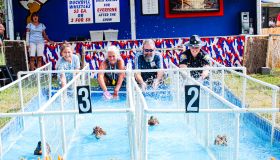How Bullying Impacts Autistic Children in Indiana

Source: Alex Potemkin / Getty
STATEWIDE–October is National Bullying Prevention Month. Dr. Breanne Hartley with Unifi Autism Care in Indianapolis says research shows that more than 60% of children and young adults with autism experience bullying, with high school students being especially vulnerable.
She says it has to start with Hoosiers teaching their children about kindness.
“We can also teach children empathy and compassion in order to prevent bullying. We should all be extremely compassionated to others as humans in this world,” said Hartley.
Sign up for the WIBC Newsletter to receive the latest news updates!
Hartley says one thing that can help autistic children feel less stressed is school is pairing them up with someone else.
“Having a buddy system of sorts within school systems is helpful. If there’s a carnival, for example, that could be really overwhelming for a child with autism. But if they have a buddy to help guide them, that can be really beneficial,” said Hartley.
She also stressed the need for every school district to have strong anti-bullying procedures.
“Those are needed for the parents, teachers, students and everyone to know that bullying can happen. I would suggest that schools continue to look at leveling up what their bullying procedures are. It is something that should be looked at very carefully. Just because a school has a procedure and policies in place today, it doesn’t mean it should be the same policies a year from now or five years from now,” said Hartley.
Many autistic kids will go through a process called stimming, short for self-stimulatory behavior. It is a common characteristic of autism spectrum disorder. Examples can include hand-flapping, rocking, or repeating words or phrases.
“They can do things like this to ease their anxieties or try and calm themselves down. Every child may look a little bit different when they display this so-called stimming behavior,” said Hartley.
On Thursday, you’ll hear about how routines impact autism.

















